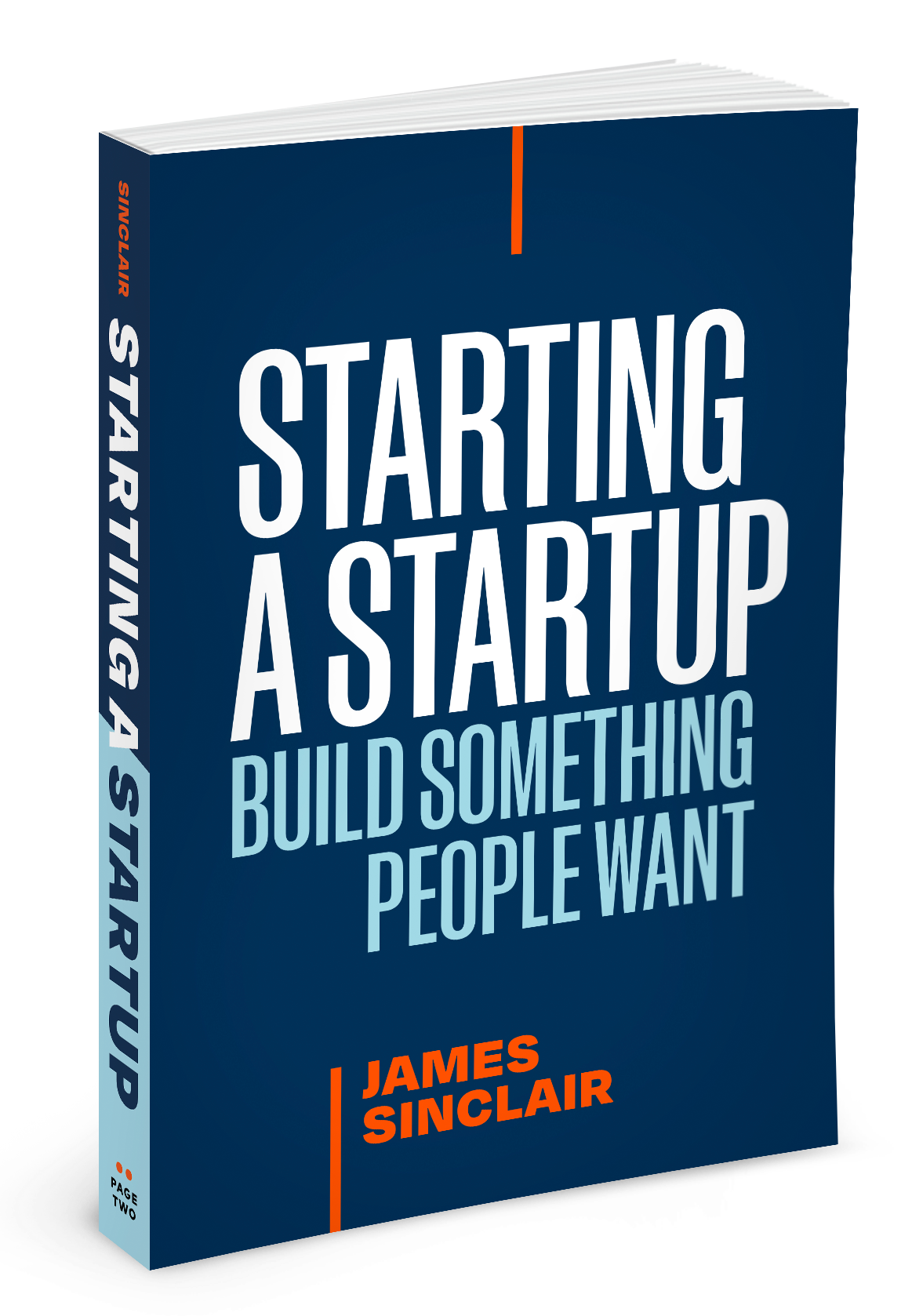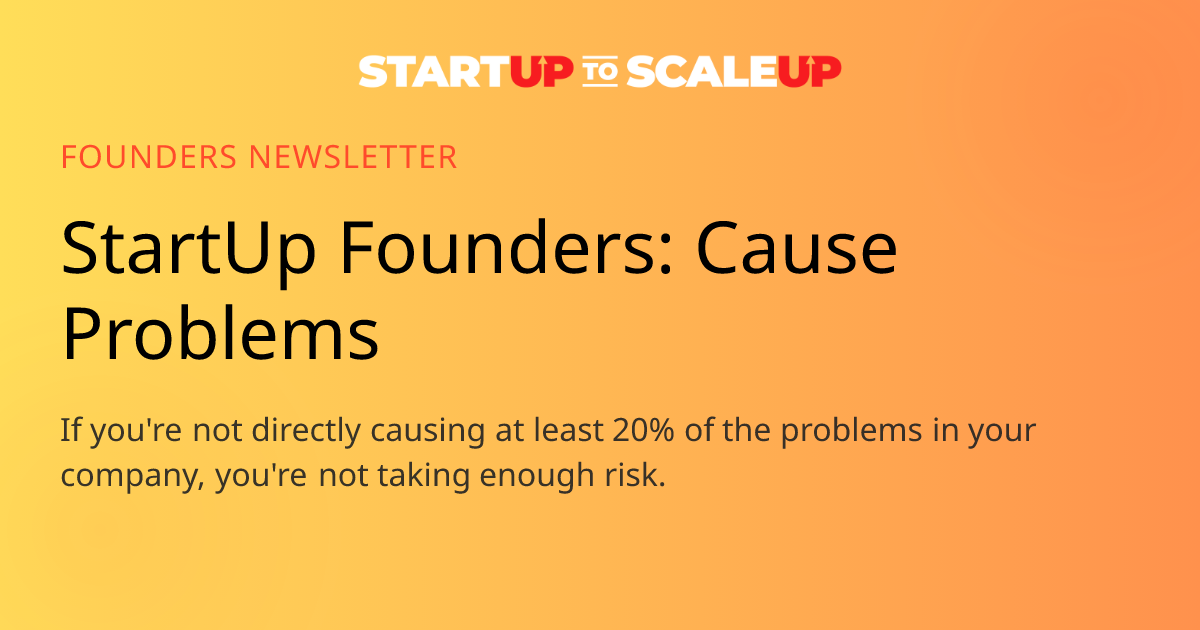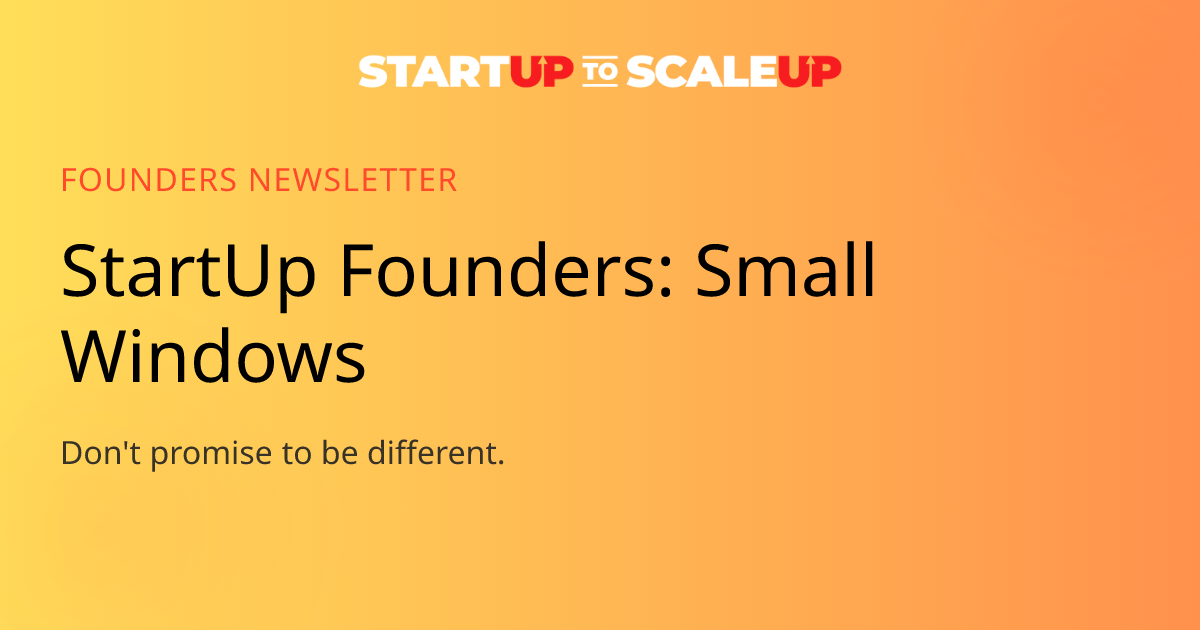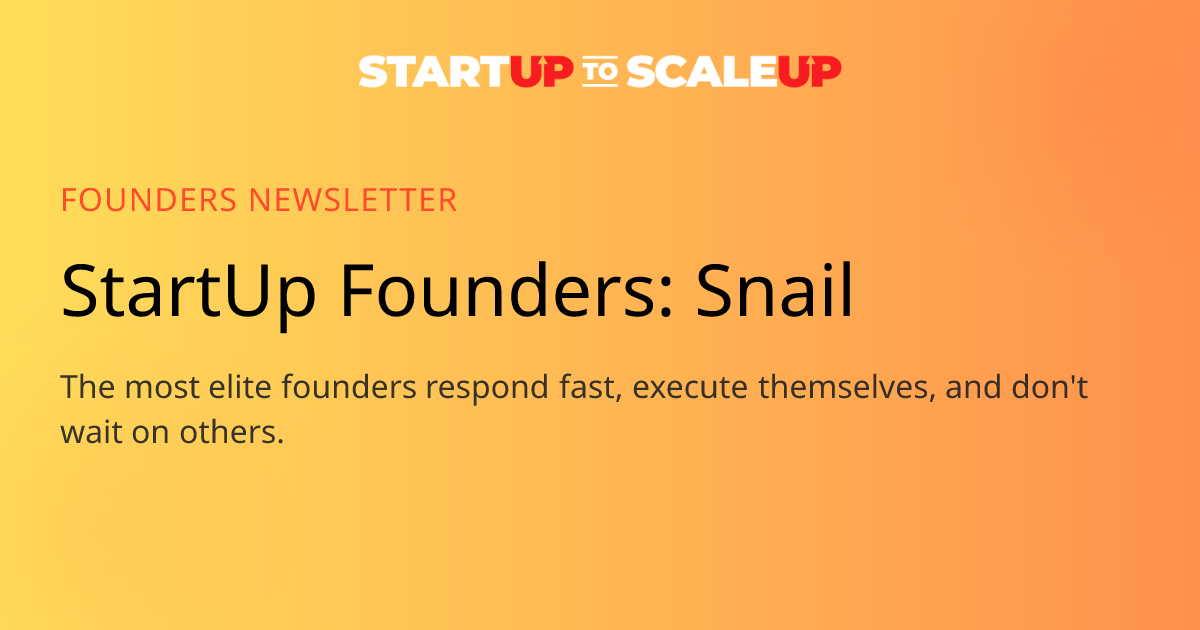Founder OS: Rewire Your Decision System to Lead Through Uncertainty
Published October 11, 2025
Core Takeaway
TLDR
- Founder OS is a practical operating system for how founders decide, act, and recover under uncertainty.
- It's not strategy; it's the rules and rituals that create clarity, momentum, and resilience.
- Install a baseline: decision hygiene, feedback loops, reframe systems, and focus rituals.
- The memo is the codified standard of normalcy - how you operate when everything else is chaos.
Newsletter
Hey Reader,
Thanks for supporting my book launch the last two weeks, I am incredibly thankful for your support.
This week isn't a newsletter. It's a memo.
The market looks better than ever and worse than ever. Multiples make no sense. AI is rewriting the rules. Money's flying, but not always toward you. The default triple, triple, double, double that used to guarantee venture investment is gone. Churn is brutal. Pricing models are delusional. Breathing room is non-existent. The market is relentless right now.
It's almost impossible to tell if the market is with you or against you, and Porter's Five are attacking from every angle. There's never been a better time to be a founder and there's NEVER been a worse time to make lazy assumptions, whether on purpose (incompetent) or by accident (ignorant).
So what I've been saying to clients (aside from "you asked for this") is that your job is to focus on what's inside your control, because trying to manage what isn't is not only impossible, it's an accelerated route to burn out. The focus has to be on execution, this is not you waiving mandatory forward looking vision. You are building into the future, you better have a view of what it will look like. This is just refusing to drown in the chaos.
You need a baseline of normalcy, a system you can default to when things feel off-axis that you can trust. A cognitive infrastructure you operate from no matter what's happening around you.
When everything external is unpredictable, the only way to survive is to build an internal system that isn't... to repeat... a baseline of normalcy.
It's akin to a FounderOS. As in, this is not advice; they're defaults. So when the north star doesn't seem to be in the north, perhaps these are the things you can still steer by.
This is really just my Miro board in a list format... of what it means to take ownership....
- Who Cares
Work out what actually matters.
Most founders are busy; few are productive. If it doesn't move a metric that matters, internally to your next milestone or externally for the customer you are building for. Stop doing it.
-
Your Fault
Everything is your fault. All of it.
Even the things you didn't touch, because you built the system that let them break. Extreme ownership is the only thing that keeps the power in your hands.
- Talent
Hire for Floor, Not Ceiling
This feels out of place but it's not. You don't fail because of potential; you fail because of someone's operational floor.
Potential is optimism. Floor is survival. Your job isn't to take bets on people (ish - I reserve the right to clarify!); it's to de-risk the system any way you can. A small, cohesive team that ships is infinitely more valuable than one that "might".
-
Prove or Disprove
Belief is cheap; proof is expensive.
Build the smallest and quickest test that tells you how close to right you are. Never stop doing that, even in your arrogance era. The faster you learn, the longer you live. (This is not build shitty, it's build intentional)
-
Don't Compare
Listen but don't compare.
You only see what they put out, it is largely noise. The minute you start building someone else's company, you've stopped building yours. Everyone knows that every company is some level of dysfunctional mayhem.
-
Velocity > Speed
Fast feels fab.
Fast is so impressive right up until it kills you. Speed is motion; velocity is motion in the right direction. Direction compounds; random hustle doesn't.
-
Do It Epic
If you're going to do anything, do it well, to the end.
How you do anything is how you do everything. If you're betting years of your life, make it undeniable, and complete the job. If you are asking someone to do a thing, make it worth it, make it overly equitable.
-
Catch Signals
Markets whisper before they scream.
Stay so alert to the nuance, to the words between the words, the signals, the moments, the tiniest of openings. Your job is to see the pattern before anyone else does and move on it.
-
60-Day Proof
What has to be true for you to call it progress.
Without short-term proof, everything is just theatre. You can't steer what you can't measure and you can't build through random acts of doing bits n pieces.
-
Reframe
Is your problem right, your solution wrong.
Never stop reframing the problem you are solving. Again and again. What is the problem, why does it exist, how is it being solved right now - all the how questions. If we didn't solve it the way we have solved it, how might we solve it... Your product, your GTM, your commercial model. All of it.
-
Energy
Don't confuse time and energy.
Time isn't your scarcest resource, unfortunately, it's usable energy. Guard it like runway. How you sleep, how you eat, how you exercise, how you think, how you socialize are as strategic as your code, your cash, your company.
-
Empathy
Everything you build runs on human behavior.
Users, teams, investors, customers, prospects, randoms... they're all emotional systems with different incentives that you have to understand. You have to map your SCARF model or you will never stop fighting human nature.
This was supposed to be the end of the memo, but it's not, because the real question isn't whether you agree with my 12 principles but rather how you force yourself to execute them, or any new set you create, day in, day out.
Cognitive infrastructure only works if it's mandatory, not part of your mood board. Here's how you operationalize it:
Decision Hygiene: Treat choices as reversible or irreversible. Move fast on the reversible, slow down on one-way doors. Fake speed is just expensive rework. (Bezos)
Kill Criteria: Pre-decide the metrics, the spend, the timeline where you stop. Hope is never a strategy. Quit intelligently from the micro to the macro.
Operating Cadence: What does your weekly rhythm look like. For every swimlane in the business. Cadence is the warm up to a system. You have to have repeatable flows.
This is my FounderOS. Build on it?
If I can be of service, feel free to grab time.
LFG.
-- James
Frequently Asked Questions
More Newsletters
Continue Your Founder Journey
Explore all the resources available to help you build and scale your startup
Startup Frameworks Library
Subscribe to the Newsletter
Join 140,000+ founders getting exclusive strategies, frameworks, and founder stories every Sunday.
Get instant access to the 50-Step Founder Playbook downloaded over 1M times
Presented by




